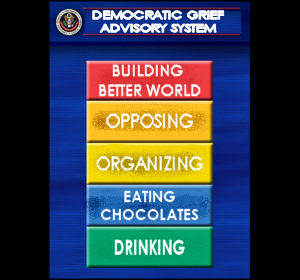The Quote that Ate an Hour or Why Blogging Takes Time
"The object of life's journey is not to arrive at the grave safely in a well preserved body, but rather to skid in sideways, totally worn out, shouting, 'Holy Shit, What a Ride!!!'" -- Mavis Leyrer
This quote arrived this morning in an email from a friend. Damn, was it apt, I thought, as I looked at myself in the mirror this morning.
So, I wanted to share the quote, but it came without a source. I like a source. So to google I went. First return, there it was, in a person's blog. My morning's adventure had begun.
1. Jody posted it, and credited her friend ...
2. Katja who has a really cool avocado in her blog, which itself is quite a remarkable statement about disabilities, who had this ...
3. very cool map showing where visitors to the site IP's originate which reminded me that a link could take me across the world, but I had to go back to my...
4. Google search to see if the attribution hit on the first return was accurate, so I checked more site, where the quote seemed to travel around discussions of ...
5. motorcycles and more motorcycles...
5. which leaves me sitting here, wondering who Mavis Leyrer was, a motorcyle person? Back to Google. ..
5. According to a few sites, Mavis Layrer was an 83 year old woman from Seattle. It seems Mavis' quote has been very popular in blogs this fall, including this one, where the author ">went to Google Answers to find the source so...
6. I poked a bit further and found out Mavis was married to George, who has since passed.
Wow. So my story ends, for now, back at google.
And people wonder why blogging takes so much time! Now, to work!








